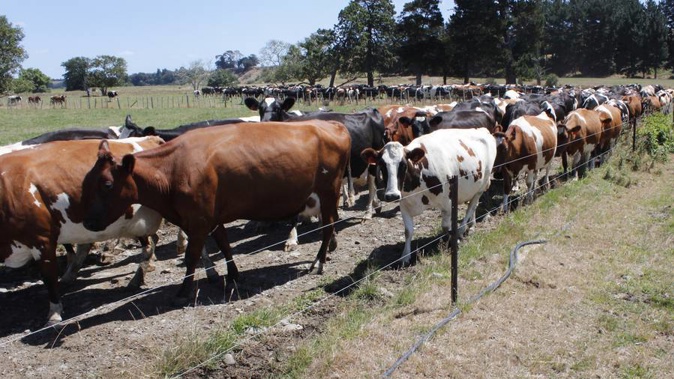
Growing hostility between New Zealand's urban and rural communities has been observed by a keynote speaker at a planning conference in Tauranga.
Professor Paul Spoonley of Massey University was taking part in a wide-ranging panel discussion on the final day yesterday of the New Zealand Planning Institute's conference at ASB Arena.
The hostility together with reducing the size of dairy herds and preventing the spread of New Zealand cities across fertile soils were among the issues to emerge during the final session of the conference.
Five hundred delegates gathered to hear a wide-ranging panel discussion that picked up on themes to emerge from two days of keynote speakers and workshops.
The panel discussion should have featured Housing and Urban Development Minister Phil Twyford and Economic Development Minister David Parker, but they were unable to take part because of flight issues out of Wellington.
Professor Spoonley, quoting figures from another professor, said that the equivalent excrement from 43 million humans was being pooped on to New Zealand farms every day without a sewage system.
''The way we use farming is unsustainable.''
The global head of agribusiness for KPMG Ian Proudfoot said things had been pushed too far. New Zealand had to farm to the true capacity of its land, and to levels where the community felt comfortable.
He said milk production had peaked in New Zealand and production was on a downward curve because fewer cows were better for the environment.
''I see that farmers are looking at their farms and recognising that they have been trying to extract too much from the land.''
He predicted New Zealand's annual milk production would drop from 22 to 23 billion litres a year to 15 to 17 billion litres.
Hurunui District Council deputy mayor Marie Black highlighted the ''Proud to be Farmer'' campaign, saying most farmers were choosing to leave their land in a better place than when they found it.
Spoonley said there was a growing urban/rural divide in New Zealand, with quite a degree of hostility building up between the two communities.
He noted this particularly during a bicycle tour when he quickly decided not to tell people that he was from Auckland.
Proudfoot highlighted how each community relied on each other, saying Auckland was the biggest food processing centre in New Zealand.
Conference MC and broadcaster Wallace Chapman challenged the panel by saying that New Zealand was destroying its fertile land by bad planning.
Proudfoot said vegetable growing land like at Pukekohe and Pokeno were coming under the most pressure.
Planning Institute chairman Bryce Julyan said in the lead-up to the conference that planning for the long-term sustainable future of New Zealand's cities and resources required immediate attention.
Rapid urbanisation, water quality, and the impact of natural hazards and climate change were among other issues tackled at the conference.
Take your Radio, Podcasts and Music with you









